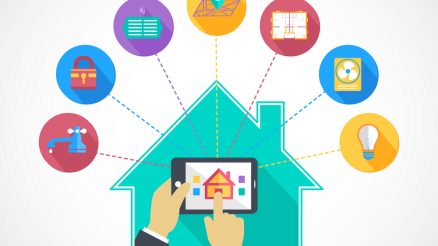A number of important developments and trends point to a bright and exciting future for the technology sector. Our everyday lives, the economy, and society as a whole will all be deeply impacted by these innovations, which will in turn affect the way we engage with technology.
Artificial intelligence (AI) and machine learning (ML) will remain at the cutting edge of innovation. They will be incorporated into many different systems, from self-driving cars and digital assistants to medical testing and economic research. Advances in areas such as natural language processing, computer vision, and decision making may be expected as AI-driven systems get better at comprehending and duplicating human-like intelligence.
When it comes to interacting with digital content, augmented and virtual reality (AR and VR) technologies are poised to bring about a sea change. Applications of these fully immersive experiences will be found in fields as diverse as education, healthcare, architecture, and remote cooperation, not just gaming and entertainment. We may anticipate a rise in AR/VR use as device costs drop and software capabilities increase.
Faster data transfer rates, less latency, and a more resilient IoT infrastructure are only the beginning of what a 5G network implementation will bring us. This will open the door for developments in areas such as driverless cars, smart cities, and Internet of Things (IoT) gadgets like fitness trackers and smart refrigerators.
The number of Internet of Things (IoT) devices will continue to increase, perhaps reaching tens of billions by the end of the decade. As a result, our ordinary things will eventually include sensors and internet connection, facilitating data interchange and automating previously manual processes. Implementations of the Internet of Things will have a huge impact on industries including healthcare, agriculture, and manufacturing.
Blockchain technology is expanding beyond its current use in the realm of cryptocurrency. Decentralized finance (DeFi) is only one area where it is being put to use, along with supply chain management and digital identity verification (IDV). Transactions, contracts, and digital assets might be handled quite differently if the technology is fully developed.
Cybersecurity and privacy concerns are evolving with modern technology. Even as AI and the Internet of Things become more intertwined, cyber security will remain a top priority. Risks may be reduced by creating new methods of data and system security, such as zero-trust architectures and cutting-edge encryption tools.
In conclusion, the road ahead for the IT sector is certain to be an exciting and revolutionary one. These tendencies are not happening in isolation; rather, they are linked and bolstered by one another. There will be a growing impact on the industry’s future from ethical concerns and responsible innovation. The continued development of technology will have far-reaching effects on all aspects of society and the economy, as well as our everyday lives. The IT sector isn’t only about making money; it’s about altering humanity’s destiny.



